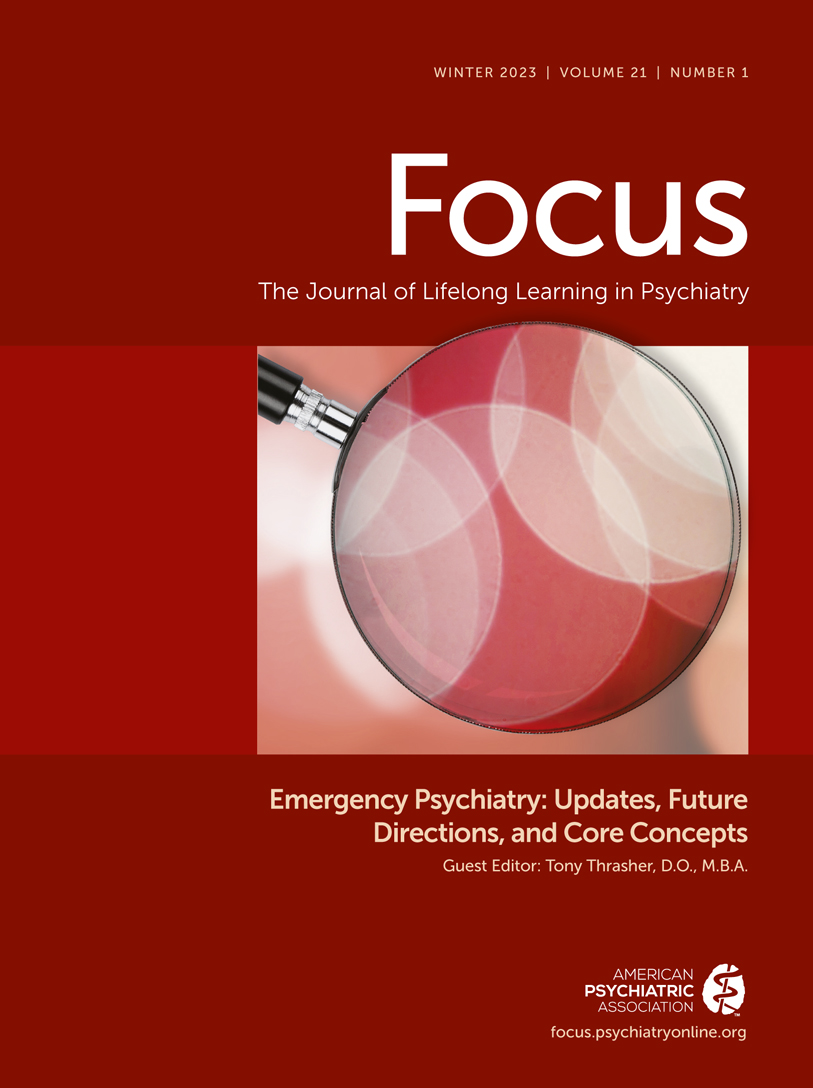Legal Considerations in Emergency Psychiatry
Abstract
Emergency psychiatry stands at the fulcrum between the general principles of autonomy and liberty balanced against illnesses that both subvert autonomy and amplify risks for violence and suicide. Although all specialties of medicine must operate in adherence with the law, emergency psychiatry is particularly constrained and guided by state and federal laws. Routine matters of emergency psychiatric care—including involuntary assessment, admission and treatment, management of agitation, medical stabilization and transfer, confidentiality, voluntary and involuntary commitment, and duties to third parties—all occur within carefully delimited legal boundaries, rules, and processes. This article provides a basic overview of critical legal principles relevant to the practice of emergency psychiatry.



